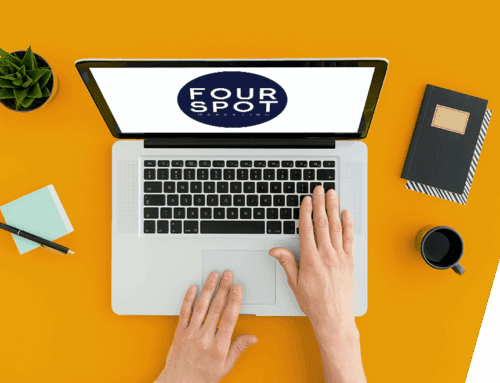Creating Facebook Ads Copy with Notion and ChatGPT
Introduction to Facebook Ads Copywriting
In today’s digital world, creating effective Facebook ads is more important than ever. With so many businesses vying for consumer attention, your ad copy needs to stand out while also being relatable and engaging. Understanding the intricacies of Facebook’s advertising platform can make all the difference in reaching your targeted audience efficiently.
The process of crafting effective ad copy can seem daunting at first, but tools like Notion and ChatGPT offer innovative solutions to ease the burden. By leveraging these technologies, you can streamline your copywriting process while still achieving impressive results through creative and engaging content.
The Role of Notion in Organizing Ideas
Notion serves as a powerful organizational tool that provides a centralized hub for storing ideas, concepts, and feedback. When it comes to writing ad copy, staying organized is critical to ensuring consistency and efficiency. Notion allows you to create templates, track progress, and collaborate with team members seamlessly.
Using Notion, you can easily manage and structure your ad campaigns from start to finish. Whether it’s brainstorming new approaches or refining existing strategies, Notion offers a versatile platform that adapts to your unique workflow, making it an essential part of any copywriter’s toolkit.
Leveraging ChatGPT for Creative Copy Generation
ChatGPT, an AI language model, has revolutionized the way we approach creative writing tasks. Its capacity to generate text based on provided inputs makes it ideal for crafting unique Facebook ad copy that captures attention and drives engagement.
By integrating ChatGPT into your copywriting process, you gain access to an endless well of inspiration and ideas. The AI ensures that you maintain a conversational tone, helping to humanize your brand and connect with your audience on a personal level.
Understanding the PAS Copywriting Framework
The PAS (Problem-Agitate-Solve) copywriting framework is a tried-and-true method for creating compelling and persuasive content. It involves identifying a problem faced by your audience, agitating that problem to highlight its impact, and then offering a solution through your product or service.
This strategy is particularly effective in Facebook advertising, as it quickly resonates with users who are scrolling through their feeds. By addressing their pain points directly and offering a clear path to resolution, you can significantly enhance your ad’s effectiveness and conversion rates.
Integrating Notion and ChatGPT: Step-by-Step Guide
To harness the full potential of Notion and ChatGPT, begin by setting up a structured template in Notion that outlines your ad copy components. This includes sections for the problem, agitation, and solution, as well as space for any additional ideas or notes.
Next, use ChatGPT to generate initial drafts of your ad copy. Input key details about your audience and product, and let the AI provide fresh perspectives and options. Then, refine and adjust these drafts based on insights and feedback gathered within Notion.
Benefits of Using AI and Organizational Tools
The combination of Notion and ChatGPT offers numerous benefits for ad copy creation. Not only do these tools save time and resources, but they also enhance creativity by providing new angles and ideas that might not have been considered otherwise.
Moreover, this integration encourages collaboration and iteration, enabling teams to work together effectively and produce high-quality ad content that resonates with audiences. The seamless coordination between idea generation and organization streamlines the entire process, leading to better outcomes.
Tips for Crafting Effective Facebook Ads
When creating Facebook ads, keep your audience in mind at all times. Use language that speaks directly to them, incorporating conversational tones and relatable scenarios. Prioritize clarity and simplicity in your messaging to ensure it is easily understood and remembered.
Additionally, consider testing multiple versions of your ad copy to see which resonates best with your audience. By analyzing engagement metrics and feedback, you can fine-tune your approach and maximize the impact of your campaigns.
Conclusion
Creating compelling Facebook ads doesn’t have to be a daunting task. By utilizing tools like Notion and ChatGPT, coupled with the PAS framework, you can streamline your process and create ads that truly resonate with your audience. Stay organized, be creative, and always keep your audience’s needs front and center for the best results.
Frequently Asked Questions
What is the PAS framework in copywriting?
The PAS framework stands for Problem-Agitate-Solve. It’s a method used to engage readers by first highlighting a problem, then agitating that problem to stress its importance, and finally providing a solution through your product or service.
How does ChatGPT assist in ad copy creation?
ChatGPT aids in generating creative and engaging ad copy by providing text based on input prompts. It helps streamline the writing process and offers fresh, innovative ideas that can capture the audience’s attention.
Why is Notion useful for organizing ad campaigns?
Notion is a versatile tool that helps organize and manage ad campaigns efficiently. It allows for real-time collaboration, progress tracking, and structuring of content, making it easier to maintain consistency across campaigns.
Can AI replace human creativity in copywriting?
While AI like ChatGPT can enhance and support creativity by providing new perspectives and ideas, it cannot fully replace the nuanced touch and emotional intelligence a human writer brings to the table. The best results come from combining both human and AI efforts.
What are some key considerations when writing Facebook ad copy?
Key considerations include understanding your target audience, maintaining a conversational tone, being clear and concise, and testing different versions of your ad copy to determine what resonates best with your audience.











